-
Are You Overlooking Recycling Opportunities at Your Restaurant?
If your restaurant currently participates in a program for recycling serving Atlanta , you may be wondering how you can further reduce your establishment’s carbon footprint. Luckily, you have several options available to you that can help your restaurant recycle more and waste less.
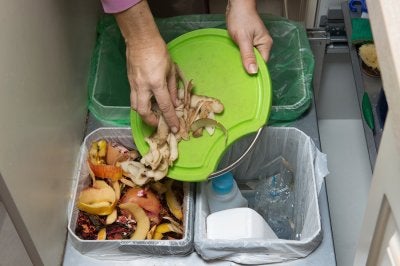
Starting an Organic Recycling Program
For farmers and gardeners, composting is a widely-used method for reusing food and foliage scraps to create a nutrient-dense amendment for soil. Today, composting is becoming a popular and more viable option for restaurants as well. Through organic recycling waste management programs, your establishment can increase its recycling rates, put food waste to better use, and promote a greener image to your customers and employees. Organic waste recycling programs often accept a wide range of food products that may include paper products, fruits, vegetables, meat, seafood, plants, cut flowers, dairy products, and eggs.
Using More Recyclable Materials
Once you have a recycling program in place in your restaurant, you can begin to look for additional opportunities for preventing waste. Your establishment probably uses quite a few materials that aren’t recyclable. First, find out if you can find recyclable alternatives to replace your non-recyclable supplies, and then create a strategy for using less of the items that do not have a recyclable counterpart. Cutting down on the amount of non-recyclables that are used in your restaurant is eco-friendly and can save you on supply and waste disposal costs.
Evaluating Your Recycling Practices
If you have educated your staff about the benefits and proper methods of recycling and make it easy for them to do so with the convenient placement of recycling bins, then you have already taken a significant step toward sustainability. However, it can be easy to overlook areas where your establishment can make improvements. Scheduling a waste audit with a waste recovery company will provide a thorough look at your restaurant’s waste production and can alert you to missed recycling opportunities.
-
A Look at Computer Recycling
Hidden inside computers, even old ones, is a treasure trove of valuable and useful materials that can be transformed and made new. The precious metals inside of a computer are particularly important since recycling them helps reduce the amount of mining and extraction needed to supply makers with these metals. Watch this video to learn more about computer recycling and why you should never throw old computers away.
If you run a business, it’s especially important that you dispose of computers and other sensitive IT equipment as carefully as possible. For peace of mind that your data (and your customer’s data) is secure, trust your computers and sensitive IT assets with a reliable and experienced electronics recycling company in Atlanta . Whether you’re updating your entire IT infrastructure or need to dispose of a single laptop or desktop computer, a comprehensive electronics recycling provider will make sure things are recycling correctly.
-
Eco-Friendly Practices for Industrial Sites
Industrial facilities are at the heart of America’s manufacturing capabilities, but it’s also true that these sites can have a greater toll on the environment than other types of operations and practices. Fortunately, there are some significant benefits to adopting eco-friendly practices that can justify and even accelerate your facility’s commitment to going green. For example, a more profitable operation is the number one reason why industrial facilities decide to adopt more eco-friendly practices. An industrial waste management company in Atlanta can help you connect the dots and make the shift, but in the meantime here are some things you can do to benefit the environment and your bottom line at the same time.
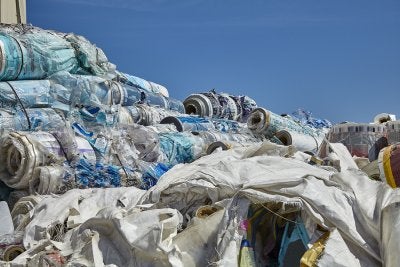
Make the Commitment to “Go Green”
The first and most important eco-friendly practice is simply the commitment to go green at an operational and organizational level. Instituting a company-wide recycling policy and educating employees and stakeholders about the importance of being eco-conscious is the first step towards real changes in your industrial site that benefit the environment.
Improve Facility Energy Efficiency
Although it’s certainly easier said than done, improving your facility’s energy efficiency is one of the best things you can do for the environment and your bottom line. If you get stakeholder buy-in and are committed to reducing your carbon footprint (and your energy costs) look for opportunities to improve energy efficiency by replacing old equipment, performing an energy audit, and other efficiency-improving practices. The Alliance to Save Energy has some tips for boosting the energy performance of your industrial facility .
Reduce, Reuse, and Recycle
The “3 R’s” have been preached and practiced for decades, but it doesn’t mean you can’t benefit from reducing, reusing, and recycling. These practices can lower the amount of energy you consume as well as the amount of materials you purchase, which can save you considerable amounts. A waste management company that offers waste analytics can help you identify areas where recycling can help.
-
Exploring the Components of an Effective Waste Management Plan
As the owner of a commercial business or industrial factory, waste management is probably near the top of your list of concerns. With proper waste management , you can conserve important materials, while also ensuring that your waste is properly eliminated. A company that specializes in recycling and waste near Atlanta can help you get started on a waste management plan for your commercial business. A team of waste management professionals can answer your questions about the dos and don’ts of proper waste management. Read on for a closer exploration of an effective waste management plan.
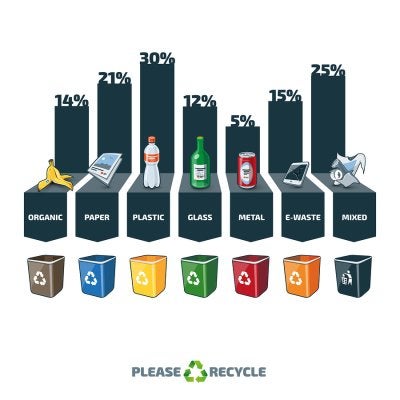
Sustainable Materials Management
When you are creating an effective waste management plan for your business, you will want to consider how you are managing your sustainable materials. During the production process, many materials may be used and discarded that can be seen as sustainable resources for your business. By structuring the way that you reduce and reuse, you can go a long ways towards improving your waste management.
An Effective Plan or Strategy
Effective waste management requires ongoing planning and strategizing on behalf of every member of your staff. When you are revamping your waste management plan, it is a great idea to take the time to outline your waste management objectives or goals. With a clearly outlines plan, you can ensure that your waste management goals are being met. Additionally, you may want to create planning cycles that will allow you to evaluate your waste management strategies at key intervals.
Collaboration and Worker Participation
Finally, an effective waste management strategy will include the willing participation of every member of your team of staff. By getting everyone on board for your waste management plan, you can rest assured that your waste strategies are being implemented on a daily basis. By encouraging all of your employees to get involved, you will be able to launch a waste management program that is a total success for your business.
-
All About Business Waste Prevention
Reducing your company’s waste in Atlanta can significantly cut down on your waste disposal and waste management costs. One of the biggest waste reduction strategies is implementing a comprehensive program that teaches employees how to reduce, reuse, and recycle waste. Here is a look at the ins and outs of business waste prevention and reduction.
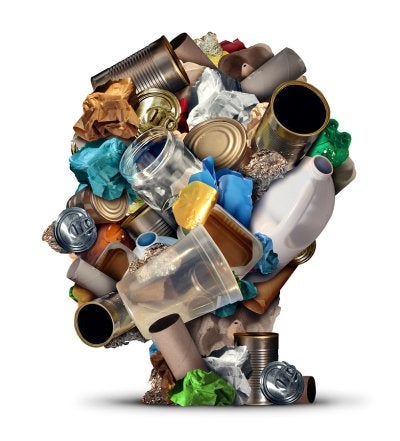
Benefits of Waste Reduction
Your company will benefit tremendously from an effective waste management and waste reduction strategy. You will spend less time and money on waste management and waste disposal, which allows employees to focus on productivity in other key business departments and programs. You will be doing your part to protect the environment by limiting greenhouse gas emissions, reducing your contribution to global warming, and decreasing the amount of space needed in landfills. Reducing, reusing, and recycling also decreases the production and manufacture of new products, thus further reducing pollution and environmental depletion. Many people would rather do business with eco-friendly, green companies, so you may even gain more clients and customers through your waste reduction efforts.
What You Can Learn from Business Waste Analytics
Before you implement a waste reduction and recycling program, you should perform waste analytics throughout your company. This is a service that might be offered through your local waste management company. Waste analytics allows you to determine how much waste each department generates from day to day. You can then identify areas in which you can reduce the waste generated by reusing or recycling certain materials. You can also develop strategies to use recyclable materials in your packaging, manufacturing, shipping, and other business processes.
Key Waste Reduction Strategies
They key elements of any successful waste reduction strategy are reduce, reuse, and recycle. Your employees should be aware of which materials are recyclable, and should have convenient access to recycling bins or dumpsters. They should also know which materials can be reused, either in their department, or another department. Finally, they should be aware of how they can reduce their waste production and waste disposal. Employees should be held accountable for waste reduction.
-
Our Industrial Waste Management Services
At Southern Waste and Recycling, we provide comprehensive and sustainable industrial waste management in Atlanta . Our industrial waste management services include on-site waste collection via roll off dumpster rentals, recycling services, waste analytics, and waste reduction and recycling facts and tips. We’re committed to helping industrial facilities reduce, reuse, and recycle in order to decrease their waste disposal costs and limit their environmental impacts.
Industrial facilities are one of the largest producers of waste in the country. By working with an experienced waste management company, you can learn how to significantly reduce your waste. We will use waste analytics data to evaluate which departments and processes generate the most waste. We’ll then work closely with you to develop specialized, structured programs for sustainable waste management. We will teach you how to recycle appropriate materials and reduce or reuse non-recyclable materials.
We’ll also help you implement a recycling program in your facility. This includes distributing recycling facts and educating everyone in the facility. Recycling bins, dumpsters, balers, and compactors should be strategically placed in visible and easy to access areas. When everyone knows how to reduce, reuse, and recycle, your waste disposal costs will significantly decrease.
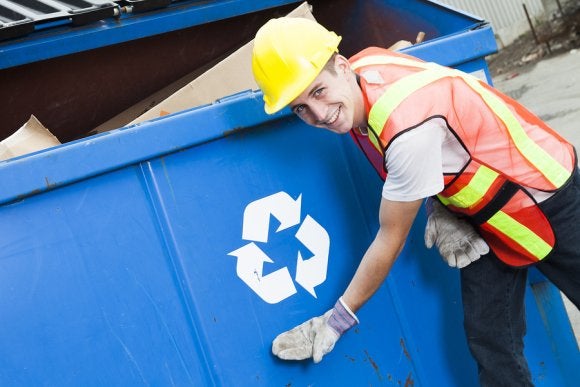
-
The Metal Recycling Process
Metals are used in manufacturing and production across a wide range of industries. When you are planning a waste management project for your home or business, you should be sure to implement metal recycling into your program. From scrap metal recycling to construction recycling and more, there are many ways that metals are recycled and reused. A company that specializes in waste management and recycling serving Atlanta will be able to provide you with more information about the fantastic benefits of metal recycling. To help you get started on your recycling program, here is a look at the process of metal recycling.
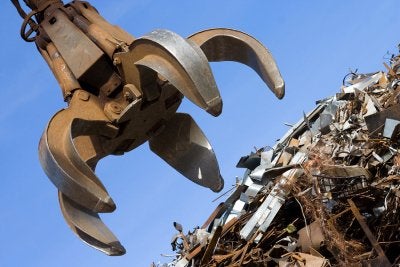
Collection
Collection is the first step of the metal recycling process . During the collection process, metals are obtained and placed into specialized containers. To make sure that your metals are in good shape once they reach the recycling center, it is a good idea to use recycling bins that have been designed specifically for use with different kinds of metals. Once you have collected your metals, you will be ready to visit your local recycling center.
Sorting
The sorting process involves the separation of metals into recyclable and non-recyclable categories. Typically, sorting will happen directly at the recycling facility. Your recycling specialist will determine what metals can be recycled, and which are not eligible for the recycling process. The metal materials may also be divided into ferrous and non-ferrous categories. With all of the metal recyclables sorted and categorized, it will be time to move to the final step of the metal recycling process.
Shredding and Purification
After sorting, metal recyclables are sent to a machine that is known as a shredder. The shredder will break down the sheets and pieces of metal and turn even the largest pieces of metal into manageable components. Next, the metal pieces are purified and melted under very intense heat. Once the metal has been completely melted, it will be ready for use in the manufacturing and production industries.
-
Guidelines for Operating an Industrial Waste Management System
There are very specific guidelines that govern anyone involved with industrial waste production or waste disposal in Atlanta . Industrial processes typically produce solid waste, hazardous waste, and mixed waste. Here are the waste disposal methods that industrial manufacturers must adhere to in order to operate a lawful, efficient, and comprehensive waste management system.
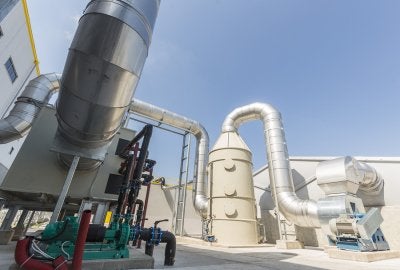
Solid Waste Disposal
Solid waste is non-hazardous, non-household waste that is generated during industrial manufacturing processes. Industrial solid waste management requires that the waste be evaluated, either by laboratory testing or documenting its characteristic, to determine whether or not it is hazardous. Common forms of industrial solid waste include empty containers, building materials, paint residue, sludge, tires, food waste, animal remains, and glass and plastic that can’t be recycled. Your local waste management company can perform waste disposal for all non-hazardous materials and waste.
Hazardous Waste Disposal and Recycling
Hazardous waste is any waste that is harmful to human health or the environment. This waste may be in liquid, solid, gas, or sludge form, and may include discarded industrial products or by-products. Hazardous industrial waste must often be stabilized and/or solidified prior to waste disposal. Hazardous waste disposal methods may include incineration, destruction, recycling, and isolation in landfills. Hazardous waste recycling involves reusing or reclaiming hazardous industrial waste. Waste is reclaimed when it is processed to recover a reusable product, or if it is regenerated. Some hazardous waste, like lead-acid batteries or electronic circuit boars, can be recycled into new products
Mixed Waste Disposal
Mixed waste consists of both radioactive and hazardous materials or components. The Resource Conservation and Recovery Act and the Atomic Energy Act regulate mixed waste disposal, and the U.S. Nuclear Regulatory Commission and the U.S. Department of Energy regulate radioactive waste disposal. Most industrial mixed waste is categorized as low-level mixed waste. Mixed waste management and waste disposal is significantly more expensive than radioactive waste; however, a waste generator can reduce the volume of mixed waste that is produced by industrial processes.
-
Spotlight on Industrial Waste Considerations
Factories, warehouses, and automotive centers are responsible for the majority of industrial waste in Atlanta . In order to maintain the safety, cleanliness, and efficiency of an industrial building, it’s crucial to have a comprehensive waste management program. A comprehensive waste management program consists of reducing waste production and waste disposal costs, reusing or donating reusable materials, and implementing a strong recycling program.
Your waste management company should provide you with dumpsters and recycling bins that are large enough to meet your needs. Make sure that these are strategically placed so that they are easily accessed by employees, yet won’t impede efficiency or safety. Your waste management company should also provide you with statistical information about the volume and type of waste you produce, so that you can efficiently and effectively schedule waste disposal, trash pickup, and recycling services.
Your employees should be aware of the details of your recycling program, and should have access to all crucial recycling facts. They should understand which materials can be recycled, and which can be reused. They should also understand important waste reduction strategies.
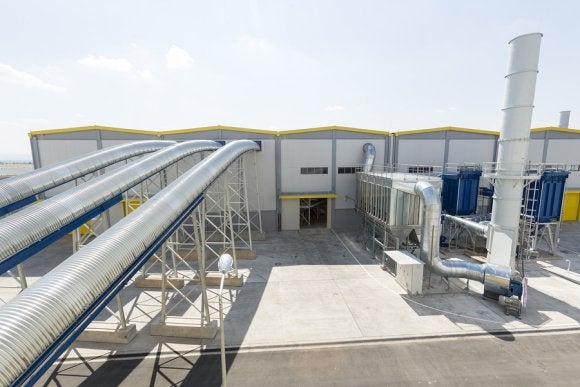
-
Setting Up Bulk Waste Removal Services
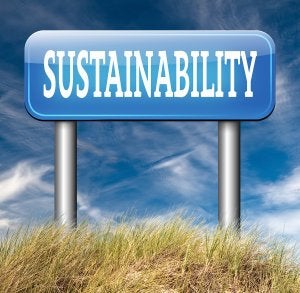 If your company produces commercial or industrial waste in Atlanta , you may want to set up bulk waste removal services with your local waste management company. This service allows you to remove large, unwanted items from the premises. Junk removal and waste removal frees up space, and significantly reduces the risk of potential health and safety issues.
If your company produces commercial or industrial waste in Atlanta , you may want to set up bulk waste removal services with your local waste management company. This service allows you to remove large, unwanted items from the premises. Junk removal and waste removal frees up space, and significantly reduces the risk of potential health and safety issues. A bulk waste removal service provides waste disposal for appliances, electronics, computers, furniture, construction waste, and even furniture. These materials can be reused and recycled at a local recycling center. By implementing a bulk waste removal program for your business, you can reduce waste, reuse and recycle valuable materials, and decrease your waste disposal costs.
An effective waste and junk removal service can reduce fire hazards and company liability by picking up and disposing of cumbersome items that may be preventing employees from moving freely about the building. Your business will also run more efficiently when your employees have more room for production.
RECENT POSTS
categories
- Uncategorized
- Waste Management Atlanta
- Waste Disposal and Recycling
- Hazardous Waste Disposal
- Chemical waste removal
- solid waste removal
- R3 Program
- Sustainable Organizations
- Sustainable Waste Removal
- Commercial Waste Removal
- Materials Management Program
- Dumpster Rental
- Roll Off Dumpsters
- Construction Site Waste Removal
- Sustainability
- Recycling in Atlanta
- Industrial Recycling
- Industrial Waste Removal Services
- Southern Waste & Recycling
- Waste Removal Atlanta
- Waste Specialists
- Atlanta
- Infographic
- Front Load Dumpsters
- Rear Load Dumpsters
- Reusable Electronics
- Dump Truck Atlanta
- Recyclable Electronics
- Trash Compactors
- Recycling
- Recycling Program
- Office Recycling
- Metal Recycle
- Electronic Waste
